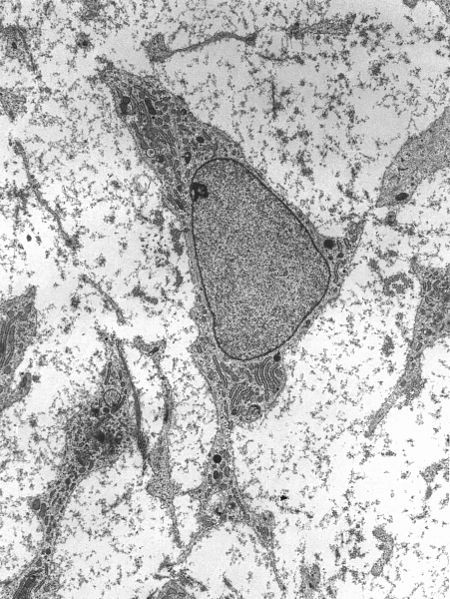Protein Synthesis Observation in Stem Cells

Protein synthesis can now be studied in adult stem cells, something that researchers claim was previously impossible.
Researchers from the Children's Medical Center Research Institute at UT Southwestern Medical Center in Dallas, Texas have developed a way to observe the process of protein synthesis in adult stem cells, offering the potential for insight into the development of numerous diseases and conditions.
In a study published in Nature, the researchers applied a newly developed technique that used a modified antibiotic, called puromycin, to measure cellular processes. For this latest study, the technique was tweaked so that it could measure the amount of protein being synthesized by adult stem cells in the body.
Unlike their miraculous cousin, the embryonic stem cell, adult stem cells can only produce cells appropriate to the organ in which they reside. For instance, adult stem cells in the heart produce new heart tissue cells to mend the organ and replace dying cells. Still, this is an undeniably important role to play in the human body, and it has long been suspected that interference with an adult stem cell's reproductive abilities is what causes the symptoms of some serious diseases. Now, according to this latest research, the protein synthesis of adult stem cells -- an essential biological process in all cells and a way in which cells communicate -- can be observed for any alarming changes that may indicate disease.
Using the antibiotic reagent, researchers were able to measure standard protein synthesis rates in the adult stem cells of healthy mice. They then compared these rates to the rates of mice with conditions born of genetic mutation such as leukemia. They found that these genetic mutations greatly reduced or increased protein synthesis rate, causing the adult stem cells to work inefficiently.
Interestingly, the researchers also found that the offspring of parents with opposing genetic defects often never expressed either genetic defect themselves. They theorize that when two genetic defects with opposing protein synthesis changes are combined and the resulting synthesis rate remains normal, the genetic defects will not have any adverse effects on the body, heedless of the fact they both defects are genetically expressed.
This indicates that the alteration of the protein synthesis rate of adult stem cells is one of the driving factors behind the declining health of a person.
The study was published in Nature on March 10.
Mar 10, 2014 03:32 PM EDT




